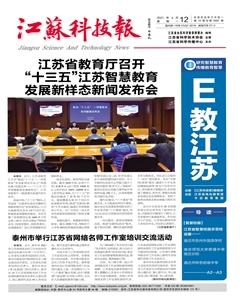数字教育行动计划2021—2027:重置数字时代的教育和培训(四)
Product by European Commission 歐盟
《数字教育行动计划2021—2027》是继欧盟2018年1月发布《数字教育行动计划2018》之后的第二个欧盟数字教育行动计划。《数字教育行动计划2018》制定了欧盟数字教育框架,在2018至2020年推进了11项教育行动,帮助成员国应对在教育和培训中使用数字技术的挑战和机遇。《数字教育行动计划2021—2027》则将重点放在了教育和培训的长期数字化变革上,并提出了数字教育的长期愿景。
Fostering the development of a high-performing digital education ecosystem
Promoting high-quality and inclusive digital education must be a common endeavour across society. Policies relevant for digital education need to be better connected and the EU can contribute to this work at all levels. Key players, in particular teachers and trainers, should be better equipped and trained to participate more effectively in the digital transformation of education and understand the opportunities this can bring, when used effectively.
Effective digital capacity planning and development is vital for education and training systems. This requires the development and ongoing review and updating of digital strategies addressing technology gaps in infrastructure, devices and developing relevant organisational capabilities in education, including the capacity to deliver hybrid modes of learning and teaching (remote and on-site). Capacity should be developed to ensure accessibility to assistive technologies and accessible digital content and more generally address unequal access, e.g. on socio-economic or rural-urban grounds. Institutionalised support is essential for such planning and development, as are interdisciplinary teams including management, technologists and instructional designers, with the needs and experience of education and training staff at the centre.
Very high-capacity internet connectivity is critical for education. Demand for connectivity is increasing due to bandwidth-heavy applications such as video streaming, video conferencing, cloud computing, and other emerging applications (such as virtual and augmented reality). Bringing fast and reliable internet to educational institutions and learners plays an important role in ensuring effective and engaging learning experiences. This means ensuring that internet access is not confined to a specific classroom or computer lab.
Digital education content and training in digital skills—including digital teaching methods—will be essential for staff. They will benefit from stronger support for online, in-person or blended teaching, depending on the context and needs of the learner. Educators should be empowered to adopt innovative methods; engage in peer learning and share their experiences. A trusted digital education ecosystem requires high-quality content, user-friendly tools, value-adding services and secure platforms that maintain privacy and uphold ethical standards. Accessibility, inclusiveness and learner-centred design are vital. The development of European digital educational content should promote the highest pedagogical and educational quality and respect the diversity and cultural richness of the Member States.
To support a high-performing digital education ecosystem, the European Commission will pursue the following actions:
1.Launch a strategic dialogue with Member States in order to prepare a possible proposal for a Council Recommendation by 2022 on the enabling factors for successful digital education.
2.Drawing on lessons from the COVID-19 crisis, propose a Council Recommendation on online and distance learning for primary and secondary education by the end of 2021.
3.Develop a European Digital Education Content Framework that will build on European cultural and creative diversity, launch a feasibility study on the creation of a European exchange platform to share certified online resources and link existing education platforms.
4.Support Gigabit connectivity of schools, as well as connectivity in schools under the Connecting Europe Facility Programme. Carry out Connectivity4Schools awareness raising actions on funding opportunities. Encourage Member States to make the most of EU support with regard to internet access, purchase of digital equipment and e-learning applications and platforms.
5.Use Erasmus cooperation projects to support the digital transformation plans of primary, secondary, vocational education and training (VET), higher, and adult-education institutions. Support digital pedagogy and expertise in the use of digital tools for teachers, through Erasmus Teacher Academies and launch an online self-assessment tool for teachers.
6.Develop ethical guidelines on artificial intelligence (AI) and data usage in teaching and learning for educators and support related research and innovation activities through Horizon Europe.
促進高性能数字教育生态系统的发展
促进高质量和包容性数字教育需要全社会共同努力。与数字教育有关的政策需要更好地联系起来,欧盟可以在各级为此项工作做些努力。特别是教师和教育培训人员等关键参与者,应得到更好的装备和培训,以便更有效地参与教育的数字化转型,并在有效使用这些技术时能抓住潜在的机会。
有效的数字能力规划和开发对教育和培训系统十分重要。这就需要发展并不断审查和更新数字战略,缩小基础设施、设备方面的技术差距,发展教育相关的组织能力,包括传输混合教学模式(远程和现场)的能力。应注重发展能力,以确保获得辅助技术和可获取的数字内容,并更普遍地解决因社会经济或城乡差异等因素所致的资源获得不平等的问题。制度化的支持对这类规划和发展极为必要,因为对包括管理者、技术专家和教学设计师在内的跨学科团队来说,教育和培训人员的需求和经验才是核心。
超大容量的互联网连接对教育至关重要。视频流、视频会议、云计算等带宽密集型应用以及其他新兴应用(如虚拟现实和增强现实),对连接性的需求正在增加。为教育机构和学习者提供快速可靠的互联网,对确保学习体验有效且吸引人具有重要作用。这意味着要确保互联网接入不局限于任何特定的教室或计算机实验室。
数字化教育内容和数字化技能培训(包括数字化教学方法)十分必要。基于学习者的背景和需求,他们将从对在线教学、面对面教学或混合教学的更强有力的支持中受益。教育工作者应有权采用创新的方法,参与同侪学习并相互分享经验。一个可信的数字教育生态系统需要高质量的内容、用户友好的工具、增值服务和安全的平台,以维护隐私和道德标准。可访问性、包容性和以学习者为中心的设计极为关键。欧洲数字教育内容的发展应促进形成最好的教育理论、最高的教育质量,并尊重成员国的多样性和文化丰富性。
为了支持建设高性能的数字教育生态系统,欧盟将采取以下行动:
1.与成员国启动战略对话,以便在2022年之前就数字化教育成功的有利因素为理事会提出可能的建议。
2.从疫情中吸取教训,到2021年底,理事会就中小学在线和远程学习提出建议。
3.建立一个基于欧洲文化和创意多样性的欧洲数字教育内容框架系统,并启动一个创建欧洲交流平台的可行性研究,以共享认证的在线资源和连接已有教育平台。
4.支持学校和学校内部的千兆互联,开展“为学校连通”(Connectivity4Schools)意识提升行动,鼓励成员国充分利用欧盟在互联网接入、购买数字设备、电子学习应用和平台等方面的支持。
5.通过伊拉斯谟合作项目,支持各级教育和培训的数字化转型计划。通过伊拉斯谟教师学院支持数字化教学和教师使用数字化工具的专业知识,并为教师推出在线自我评估工具。
6.教育开发者在教学和学习中使用人工智能和数据的伦理准则,并支持地平线欧洲在这一领域的研究和创新。

